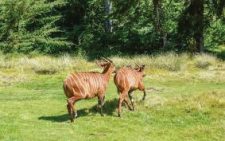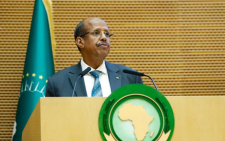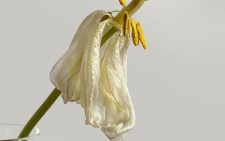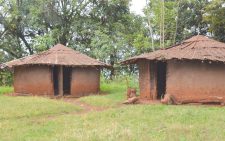Environmentalist passes on her passion to her daughter
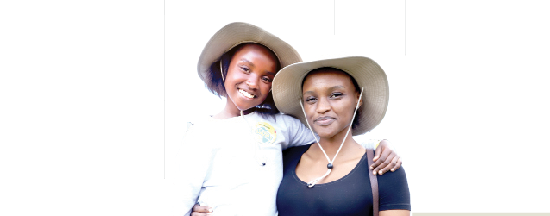
Growing up, Marley Sianto Sikawa recalls growing around wild animals around Masai Mara Game Reserve where her father worked for the county council at that time. Her primary school in Siana was also in the wild and with her friend, they had a conservation club of which Marley was an active member.
“We did a lot of tree planting from nurseries into planting them around the school. If you go to Siana now, it look’s amazing courtesy of that club. This is what instilled in me the passion for wildlife and environment conservation,” she recalls.
Her parents are also great conservationist and value wildlife and tree planting. With such rich history of conservation lovers, it was impossible for her to let her daughter not be one as well.
“There was no doubt that I was going to introduce my daughter to it. She has understood the value of this from a young age and she frowns on people throwing trash out of car windows because we don’t do that,” narrates Marley.
Conservation is the safeguarding that which is around us and using the elements of nature in the required direction. Training children to understand the concept early will ensure that they live sustainably in future. It is therefore necessary for every natural resource to be conserved because if they get wasted, there will be bigger issues created in future.
“Teaching your children on conservation is vital as it assists them to be responsible citizens in future who think about society, resources as well as environment. It makes children more aware of their activities after understanding the conservation concept and understand the world around them,” says Marley.
Births empathy
Teaching them also gives them knowledge on the consequences of their actions and this births empathy in them. It allows children to realize how valuable it is to take care of their resources as they live in the planet. Addressing issues on conservation with your children will assist them get prepared for the society as adults making them more mindful and responsible.
“It is important for parents and guardians to teach children the value of conservation for future generations. What good does it do us to not teach the value of conservation? We cannot live the same life and expect different results,” she continues.
With her daughter, Marley’s policy is leaving the place cleaner than you found it.
Having had the privilege of working with Narok County in the tourism department, the first place that she started to train her daughter on was in Maasai Mara. Here, they started off with tree planting around their home with her daughter. In 2019, they received a gift from a friend who adopted a baby elephant for us at the David Sheldrick
orphanage, their baby Elephant Naleku, has been a big part in developing the interest in her daughter.
“Sylo actually calls the baby elephant, her baby sister. You can imagine her saying ‘I have a baby Elephant as a sister’ and many of her classmates in her school thought she was having weird imaginations but it because she has grown to love the elephant,” adds Marley.
Her daughter’s involvement has been so inspiring that she added a children’s conservation department in her organisation, Naretoi Ang,’ to inspire more parents to involve their children in conservation. “We aim to work with children during holidays and at school through wildlife clubs. We plan to have tree planting, wildlife art and essay writing contests. The world needs a balanced eco-system to function well. With the disappearing of flora and fauna, we experience very harsh weather conditions and we need more children learning about this and seeking ways through which the environment will be preserved.”
As a conservationist, Marley also the former Miss Tourism Kenya 2015 pageant winner sees the world with different eyes and this has helped her respect the resources that are around her.
Empty canvas
“I can say so much about why it is important, but we cannot wait until we open our taps and they run dry for us to do something. It is true humans live a selfish life, and the great part is with conservation we are buying into future benefits, which we cannot see now, but our future generations will thank us for,” she notes.
Marley adds that parents can help their children become conservationists in many ways and the first is by practicing what they preach. “It is the small things that we do, like how we discard trash at our homes, embracing plants and trees around our homesteads, planting trees and having our children join us.
Children do what we do, not what we say. Remember they are watching our habits as they build theirs. Children are like an empty canvas, you paint their minds with the colours of your habits, experiences and lessons as they grow. Painting my daughter’s room green makes her full of appreciation for what God gave us to look after,” she explains.
At home, parents can encourage their children to turn off lights whenever they are not using and also the taps once they are done using them. They can also explain the world to their children and though it takes time and patience, one can train their children about water in the faucet comes from and how the electricity for the nightlight gets to your house.
“It is the younger generation that will propel our world into environment rehabilitation and recovery I believe. So, if we can breed a generation of conservation stewards, I will definitely play a big part in that,” says Marley.


